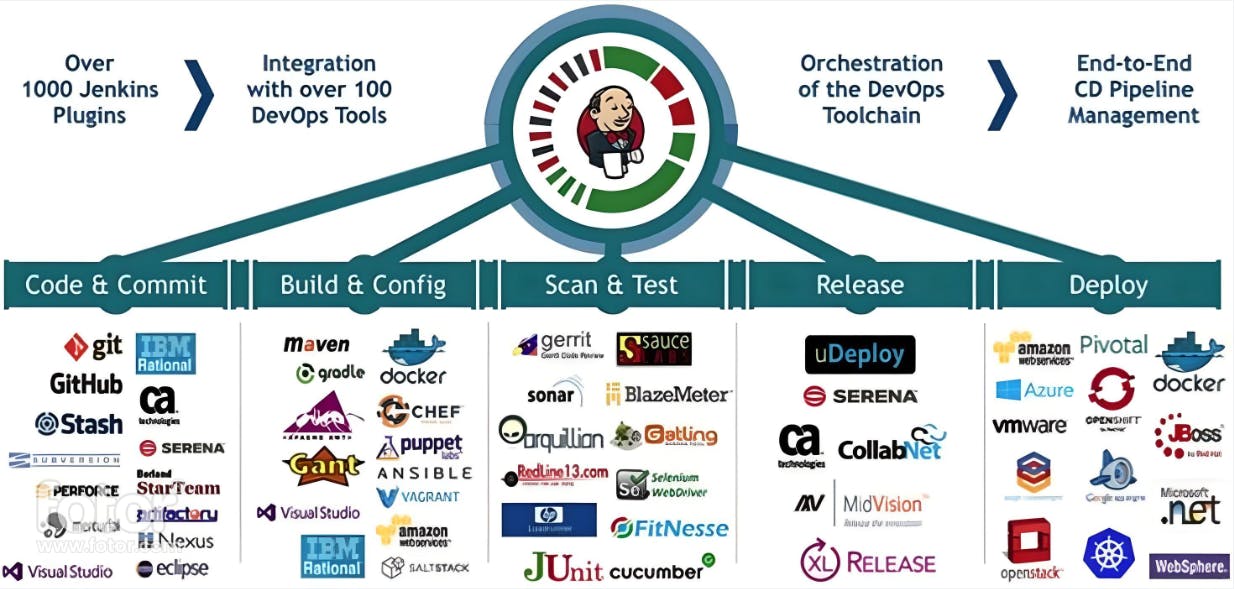Introduction
Successful software development requires effective automation and continuous integration in today's fast-paced environment. Jenkins, an open-source automation tool, has become a top choice for developers all around the world. Jenkins enables teams to automate build, test, and deployment procedures, which ultimately speeds up software delivery. This is made possible by its broad plugin ecosystem and flexible integration features. We will discuss Jenkin's main features, advantages, and potential for revolutionizing your development routines.

What is Jenkins?
Jenkins is an open-source automation server that makes it possible for software applications to be continuously integrated, delivered, and deployed. It offers a wide variety of features and integrations, which greatly facilitates its adaptability to different development contexts.
Continuous Integration and Continuous Delivery (CI/CD)
Jenkins is essential to CI/CD practices since it makes sure that code updates are consistently merged, tested, and deployed. Jenkins enables teams to find and fix problems earlier, resulting in software releases with improved quality. It does this by automating the build, test, and deployment processes.
Features and Plugins
Jenkins has a robust ecosystem of plugins that let users customize and increase its functionality.
Scheduling and carrying out of jobs - Jenkins allows for the scheduling and carrying out of jobs, which include various build, test, and deployment processes.
Version control integration - Jenkins smoothly connects with well-known version control systems like Git, allowing builds to be automatically triggered in response to changes in the source code.
Extensive plugin ecosystem - Jenkins can be integrated with a variety of tools and technologies, including Docker, Kubernetes, and AWS, thanks to its library of more than 1,500 plugins.
Distributed builds - Jenkins offers distributed builds, making it possible to split the workload over several nodes, improving scalability and speeding up build times.

Extensive Community Support
Jenkins benefits from a significant and robust development community that contributes plugins, exchanges best practices, and offers assistance via forums and mailing lists. This vibrant community guarantees that Jenkins stays updated and evolves to meet the ever-changing needs of software development. The companies using Jenkins as a core tool for their products feel safe and updated for future needs because of this vast community support.
Easy Configuration and Scalability
Jenkins offers a web-based interface that makes it simple for customers to set up and control their automation workflows. Organizations may manage projects of any scale thanks to their scalability, which enables them to meet expanding development needs.
Robust Testing Capabilities
Jenkins makes it simple to automate many test types, including unit tests, integration tests, and end-to-end tests. Jenkins provides seamless integration with testing frameworks. Test results may be easily tracked and analyzed, giving important information about the stability and quality of the code.
Conclusion
Jenkins has established itself as a crucial tool in the software development landscape, enabling teams to automate procedures, streamline workflows, and produce quicker and more reliable product releases. Organizations looking to embrace continuous integration and delivery practices frequently turn to it because of its adaptability, wide-ranging ecosystem of plugins, and active community support. Adopting Jenkins will help your team work more productively, produce higher-quality code, and deliver software more quickly and effectively.
